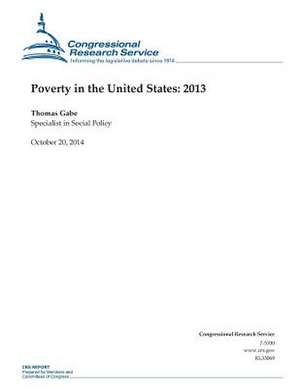Poverty in the United States
Autor Congressional Research Serviceen Limba Engleză Paperback
| Toate formatele și edițiile | Preț | Express |
|---|---|---|
| Paperback (2) | 127.79 lei 22-36 zile | |
| CREATESPACE – | 127.79 lei 22-36 zile | |
| CREATESPACE – | 127.97 lei 22-36 zile |
Preț: 127.79 lei
Nou
Puncte Express: 192
Preț estimativ în valută:
24.45€ • 25.38$ • 20.44£
24.45€ • 25.38$ • 20.44£
Carte disponibilă
Livrare economică 24 februarie-10 martie
Preluare comenzi: 021 569.72.76
Specificații
ISBN-13: 9781503006416
ISBN-10: 1503006417
Pagini: 80
Dimensiuni: 216 x 279 x 4 mm
Greutate: 0.21 kg
Editura: CREATESPACE
ISBN-10: 1503006417
Pagini: 80
Dimensiuni: 216 x 279 x 4 mm
Greutate: 0.21 kg
Editura: CREATESPACE
